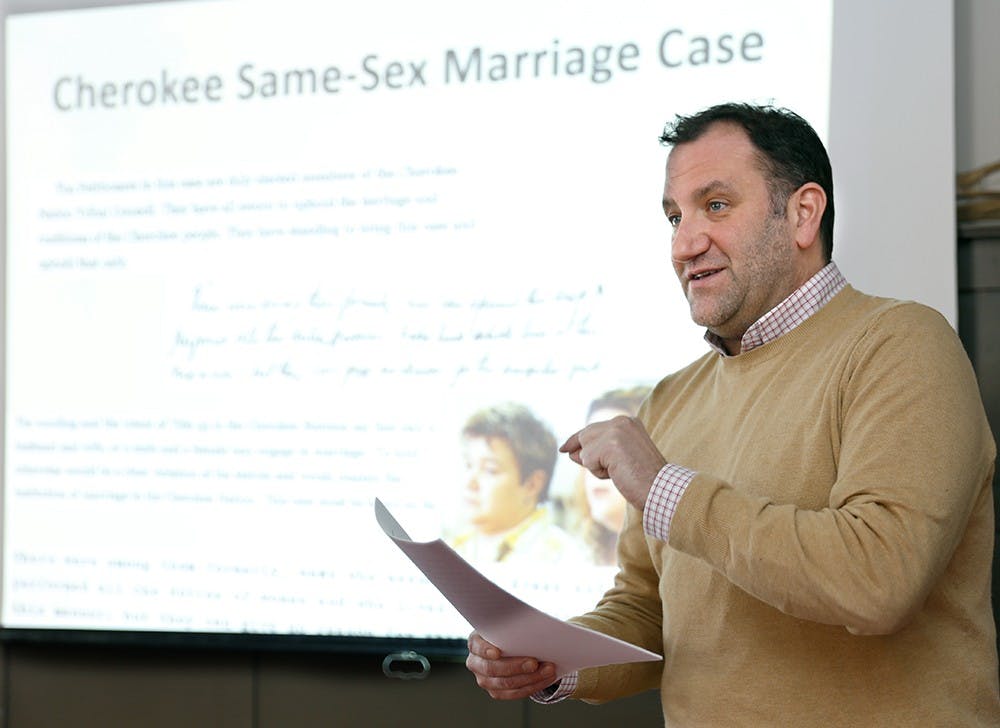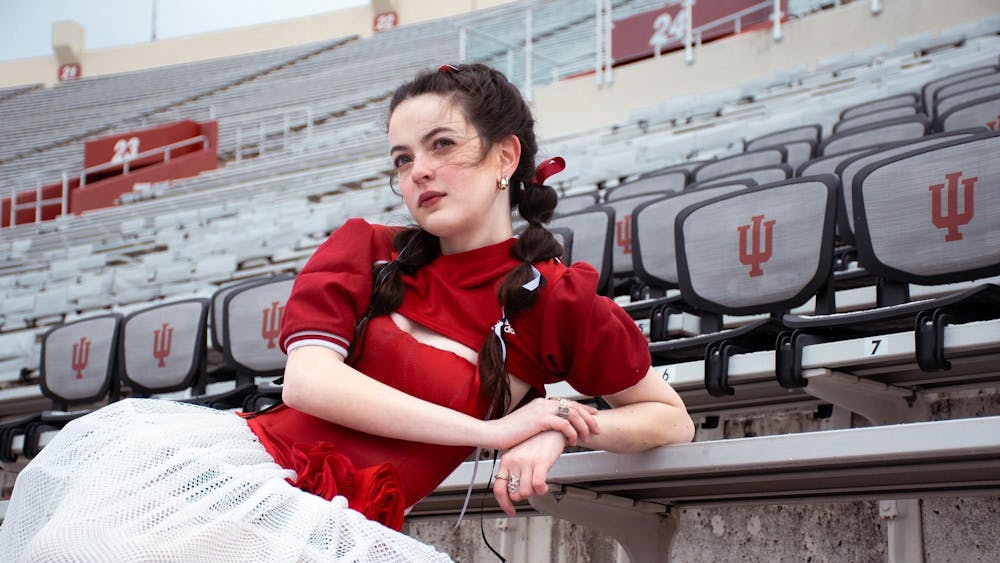When it comes to gender identity and sexuality in the Native American community, conversations historically were not about acceptance or a lack of acceptance.
Instead, professor Brian Gilley said, Native people have a completely different understanding of people, and queer people were incorporated into specific community roles.
Gilley, director of the First Nations Education and Cultural Center, made this point in a speech Thursday about the intersection of queerness and Native sovereignty in the United States.
The talk was the first of the spring speaker series at the First Nations Center.
“American Indians, in addition to being the first nations in North America, were also quite possibly the first queers,” Gilley said.
Gilley said the reason for his talk, and the speaker series overall, is to promote learning about present-day indigenous issues.
“The most important thing is to create a community of learning around Native issues,” Gilley said.
The talk focused on the issue of same-sex marriage in the Cherokee Nation.
Although one lesbian couple was granted the right to marry in the Cherokee Nation in 2005 after a legal battle, Cherokee Nation law now defines marriage as between a man and a woman, Gilley said.
Only five Native nations explicitly allow same-sex marriage, while some explicitly disallow same-sex marriage. Others are ambiguous.
Federal law now allows same-sex marriage, conflicting with tribal laws disallowing same-sex marriage.
This could force the Supreme Court to revisit the issue of Native nations’ sovereignty if someone challenges a Native nation in court about their right to same-sex marriage, Gilley said.
Native nations are subordinate to federal law but not state law.
Conversations about LGBT issues sometimes refer to Native people and historical evidences in their communities of genders and sexualities that do not match the norms of Western culture.
“Native ideas about personhood are different than Western conception of personhood,” Gilley said. “...A lot of non-Western gender constructions is that there are multiple genders and they’re tied to an individual’s role in society.”
An audience member asked about the loss of Native words for people with queer identities during a question and answer session after the talk.
Gilley said some nations still have some words in their languages to describe these identities, but the Cherokee Nation does not. Words could be created to fill these gaps, Gilley said after another question.
In past semesters, the First Nations Center was host to speaker series events every other week, departmental secretary Heather Williams said. This semester, the events will be monthly instead.
Williams said this is because the center was overstretching their resources and audience with biweekly events.
The remaining speaker series events will be Feb. 18, March 24 and April 21. They are all at 12:30 p.m. at the First Nations Center.
Although Thursday’s speech focused on Native topics, speeches in the First Nations Center’s series are not necessarily about Native American issues. Rather, they sometimes focus on indigenous people from other parts of the world.
Williams said indigenous people from across the globe can share similar experiences and speech topics can cover indigenous people from different continents.
Last semester the speaker series featured a talk on Taiwanese indigenous issues, she said.
A Taiwanese student attended the talk and was introduced to the First Nations Center, Williams said.
Williams said bringing new people into the center during speaker events is a bonus of the series.
“We would rather the door be open for indigenous inclusion as opposed to just being Native studies,” Williams said.






